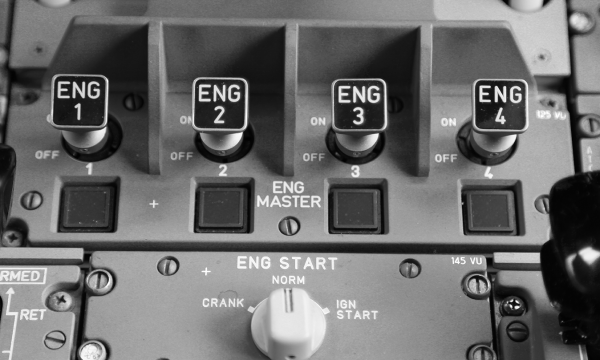A challenging environment.
Building an airline is not a trivial matter. Aviation is a highly regulated business. The infrastructure is given, as well as the choice of efficient aircraft is limited to a few manufacturers. The actual product of an airline, transportation, makes it challenging to create a Unique Selling Proposition. Moreover, due to alliances and mergers, predatory competition has developed that has created an imbalance between the less-capitalized small airlines and established groups. Several studies confirm the price as being the determining factor in the choice for an airline. At the threshold of five Euros, passengers begin to leave their favorite airline for a cheaper offer. Loyalty programs may shift this threshold but pricing remains the determining factor for filling aircrafts. Despite the challenging environment, there are concepts that lead to success. It is very important having the right concept, leaving nothing to chance, and making no mistakes. We at GMP support you the whole way from the idea, the development of the product, the application for the operating license, the development of your corporate structure, contract negotiations with your suppliers, the development and opening of your sales channels, the entry-in-service of your aircraft until towards the establishment in the market.
In the beginning many questions.
Due to the limited legal and infrastructural differentiation possibilities to other competitors, the analysis of a suitable and sustainable business opportunity followed by the definition of a smart and unique product is essential. Since some barriers can initially only be overcome by a cost advantage, the focus from the outset is on effectiveness and efficiency. As a cost advantage is one of the few long-term competitive advantages and is also one of the most important, these considerations are all the more important.
Already air law helps to recognize fundamental questions and success factors and to consider them in the business planning:
- How do I become and remain economically viable?
- Who manages the company, with which qualifications?
- How do I arrange operations and maintenance?
- Which aircraft should be operated?
- What freedoms of the air can be utilized and what traffic rights are required?
- Do I need special authorizations and approvals?
- Does the law provide facilitations for my intended operation?
The planning.
The planning of your business is based on the analysis of the market and the competitive environment, the work out of your market opportunity and your product. A marketing and distribution plan will be developed to highlight the brand, product, pricing, distribution channels and marketing activities. This is followed by the development of a risk and mitigation plan, financial planning and capitalization planning. Once all elements have been challenged and coordinated, the implementation is planned.
Competition analysis is not a trivial task. In addition to the clear delimitation of the various fields of business in aviation, it is important to assess the individual players in the segment of choice according to economic and aviation-specific criteria. Special attention is paid to market entry barriers. As an example: are economies of scale, bilateral agreements or product differentiation playing a role?
Based on the comprehensive market analysis, the opportunity is worked out. The focus of the opportunity is a sustainable competitive advantage that secures the investment and leads to success and profitability. The development of the opportunity is preceded by a sensitivity analysis of profitability under various scenarios and the definition of the best time to market entry.
From the results of the competitive and opportunity analysis, the definition of product and service is fulfilled. Part of this is also the definition of all business-critical processes and the determination of vertical integration. Clear, resilient and well orchestrated processes as well as a smart balance between in-house solutions and contracting are the basis for efficiency and effectiveness, growth and success.
A marketing and distribution plan will be developed that describes the brand, the services offered, the distribution channels and the marketing measures. In a market with just few differentiation features, brand development plays a special role. Rather than striving for meaningful, perceived differentiation, branding efforts should seek distinctiveness. Branding lasts, differentiation doesn’t!
“If brands were really differentiated in the minds of consumers, we might expect successful brands to have unique image attributes (i.e. consumers associate an image with only one brand). But a thorough examination of the image data of 130 brands in 13 product and service categories shows that people rarely (about 3% of the time) see a single brand as being exclusively associated with a particular image.”, GAILLARD and ROMANIUK (2007)
GMP works in the area of brand development with well-known brand agencies and brand specialists who already look back on a considerable portfolio of self-developed and successfully established brands.
The Operations Plan describes all activities within the company. From sales and customer service, flight operations and maintenance to fuel purchasing, IT support or the training of the flying personnel.
In addition to the requirements arising from the leadership of your company, your management must also comply with the requirements of the air law. For this purpose, several persons shall be appointed to hold key positions required under aviation law, which must be recognized by the competent supervisory authority. In Europe, in addition to European regulations, national requirements for the education and professional experience of these persons must also be met, eg. for Germany as per NfL II 274-2016. GMP assists you in the search and selection of suitable and approvable management and operational staff.
The operation of an airline is subject to many internal and external risks, such as the business model risk, the risk of substitution, geo-political risks or the risk of fuel price. An analysis of these and many other risks is carried out. Any implications for the business model will be considered.
Financial planning is prepared in accordance with international standards. Planning is supplemented with aviation-specific statistics and key performance indicators.
Regardless of whether you already have the financial resources to start up or are still looking for investors, capitalization and ramp-up need to be planned. If necessary, GMP supports you in the development of fund raising strategies and investor offerings. We also support you in your search for investors.
Starting your business, applying for all necessary permits, recruiting staff, signing contracts, entry into service of your aircraft and starting up your operations follow strict planning. The Implementation Schedule is developed in cooperation with the aviation authorities, your contract partners and your customers, such as tour operators.
The implementation.
Good planning and good project management are the keys to a successful start. GMP supports you in the implementation phase in the negotiation of contracts, for example with aircraft manufacturers, leasing companies, maintenance and handling companies. We also support you in applying for your operating license and all other necessary permits. (Learn more…) You benefit from our experience and our network.
Post-Implementation phase.
Even after the start of your entry into service, we support you in optimizing your processes and in expanding your business. (Learn more…)







